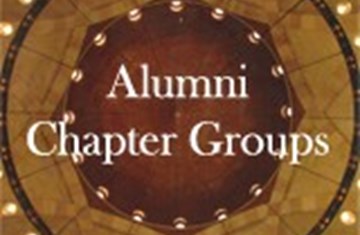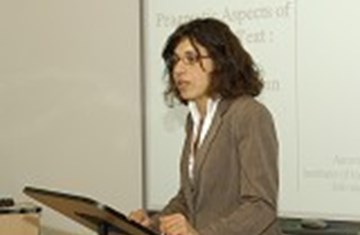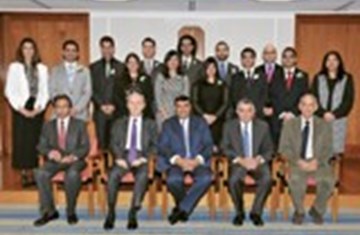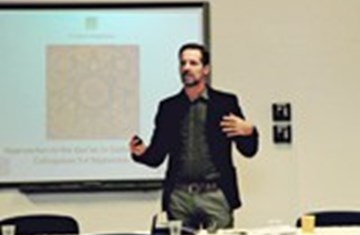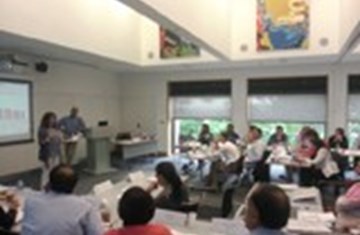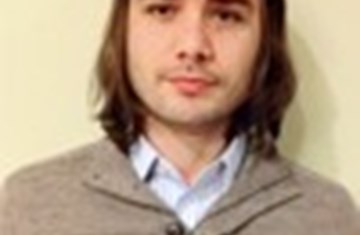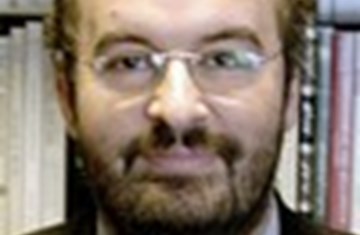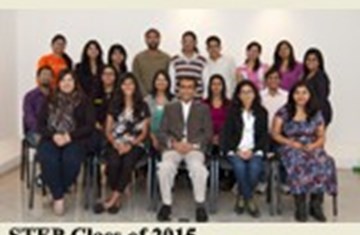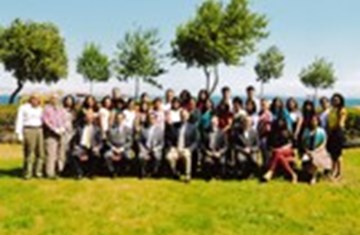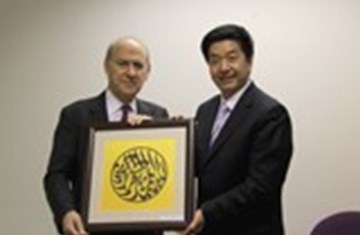IIS Scholar Interviewed on BBC World Service
Dr Omar Alí-de-Unzaga, Academic Co-ordinator of Qur’anic Studies, was recently interviewed for ‘Belief in a Golden Age’, a two-part series broadcast on the BBC World Service’s Heart and Soul programme. The series focused on Baghdad during its high point in the eighth and ninth centuries, when it was the capital city of the ‘Abbasid caliphateinfo-icon.
The circular city of Baghdad, built out of mud bricks on the River Tigris, was a tolerant, multi-religious, multi-ethnic city. One of the foremost centres of Islamic intellectual and religious research, it also incorporated much of the learning from the preceding Late Antique period c.150 – c.750 CE. It is significant that the city was only 20 miles from Ctesiphon, the old Sassanian capital. The golden age of Baghdad has left a universal legacy which spans science, religion, philosophy and literature.
In the interview, Dr Alí-de-Unzaga noted that the plurality of the classical age in Baghdad is fundamental to understanding the vibrancy of its intellectual life. Different faith and religious communities held debates with each other, thereby showing tolerance for each others’ viewpoints. This tolerance between different communities was the key to maintaining a peaceful Baghdad. But, more importantly, a pluralist society meant that scholars had to defend their ideas in a rigorous setting; against those who might have fundamentally opposing ones. Such debate continually raised the intellectual standards of the day.
Different subjects appealed to different groups of thinkers; medicine mattered to the group translating Greek classics into Arabic. Grammar and history were studied by scholars interested in Shari‘a law, while the mystics undertook research in areas such as chemistry. These scholars’ writings filled libraries and the newly invented bookshops.
Speaking about philosophy and philosophers, Dr Alí-de-Unzaga described a faylasuf as someone who was a practitioner of the philosophy of the Late Antique Period. They studied music, numbers and nature as well as the human soul and religion. Falsafa (philosophy) is a discipline that attempts to encompass all areas of human knowledge, including the sciences. In this sense, it is similar to religious ideas. Some of the questions debated by these Baghdadi philosophers were: Where does the philosopher stand vis-à-vis the religious person? Is there a philosophical truth and a religious truth? Are there two paths to the same truth? These questions elicited many different responses.
Caliph Al-Ma‘mun was the founder of the famous research library, the Bayt al-Hikmah or House of Wisdom, in 830 CE. He was the patron of the erudite philosophers of Baghdad; and like them he wanted to know how the old Greek traditions related to God’s message in the Holy Qur’an. Dr Alí-de-Unzaga related how these philosophers explained that the ‘revealed truth and the revelation as transmitted by the Prophets, as recorded in the Qur’an and the previous Scriptures, is a universal truth that can be understood by everyone, not only by the intellectual elite... Some philosophers say that the Prophet was the perfect philosopher, because he had arrived at the truth, and was able to transmit it in a language that was understood by everyone, while the philosophers would only write for philosophers.’ In the end, philosophy was integrated into Islam and when the madrasas were created, Aristotle was on the curriculum.
For Dr Alí-de-Unzaga, tenth century Baghdad’s intellectual energy is still alive: ‘I close my eyes and I imagine people with real faces, who speak to each other, who attend the majlis, who eat, who go to the market, and in the evening they . . . light their candles and write!’
Excerpts from this interview were broadcast on 30May and 6 June, 2009. ‘Belief in a Golden Age’ was written and presented by Francis Spufford and produced by Simon Coates. The programme is still available on BBC website.

